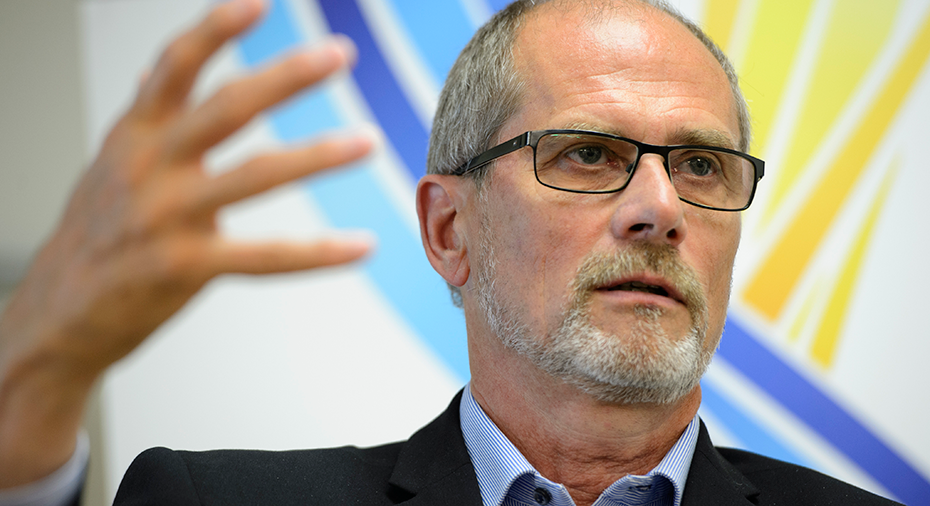By Andrew Warshaw
October 20 – The head of the umbrella body representing European leagues went back on the offensive today over the gap between rich and poor saying it would be a “real disaster” if UEFA fails to address future competitive balance in its club tournaments.
Lars-Christer Olsson, chairman of the European Professional Football Leagues, said UEFA’s new three-season deal under which more Champions League group stage places will be set aside for teams from the top four leagues, must not be allowed to continue beyond 2021.
In a case of Back to the Future, Olsson – a former UEFA chief executive – is set to return to the bosom of the organisation as the EPFL’s representative on UEFA’s Executive Committee, a move which strengthens co-operation between the two bodies after several months of fraught negotiations.
UEFA will ratify his nomination at its Congress in Slovakia next February, giving Europe’s leagues, who have been lagging behind the clubs in terms of credibility, a stronger decision-making platform than they now have.
Whether in practise the EPFL will have any clout remains doubtful but Olsson made it clear, following the EPFL’s annual assembly in Israel, that he intends to use his voice to put pressure on UEFA to produce a more level playing field for Europe’s mid-sized and smaller leagues, both in terms of eligibility and prize money.
“It’s a major step for the EPFL to be involved in the decision-making procedures,” Olsson told reporters.
Re-iterating his opposition to UEFA’s 2018-21 deal on Champions League eligibility, under which more group stage places will be set aside for teams from the top four leagues and fewer for clubs from smaller leagues, he added: “We said already when the decision (on the new format) was made that it was not a good one. We think there is a need for a different distribution model in order to close the gap between the richest and those who don’t have so much.
“We are also of the absolute opinion that for the 2021-24 cycle we should revisit both qualifying formats and access lists. There has been a lot of information circulated that the clubs have already agreed that there should be a prolongation of the 2018-21 model. But this is totally against our wishes. We will fight hard for that not to happen. It would be a real disaster.”
“Unfortunately there is a very strong link between financial strength and sporting results. We’d like to have 40 or 50 clubs perhaps competing for the title of European champion rather than 10.”
“The new model of distribution in European club competitions will have a negative effect on domestic competitions because if you have clubs who are repeatedly participating in the Champions League, the new rules give them a huge advantage. The financial gap between the top clubs and the others will be devastating in terms of competitive balance. The money generated by the Champions League and Europa League is now so important it will also have an effect on bigger leagues which perhaps was not the case in the past.”
Olsson is particularly aggrieved by UEFA allowing a club’s coefficient in terms of how it has performed historically in European competition to determine how much money it receives. “This gives the old established historically successful clubs even better opportunity to stop others coming through,” he said.
He is also uncomfortable with top clubs hoarding players and farming them out on loan.
“We have a catalogue of proposals for UEFA, a range of ideas,” said Olsson. “The loan system was introduced to develop talent … but when you look at it you see that some clubs are owning 100 players. Hoarding of players actually sometimes prevents talent to develop. Domestic competition should be unpredictable. We need to create a landscape for restoring competitive balance.”
Contact the writer of this story at moc.l1714140332labto1714140332ofdlr1714140332owedi1714140332sni@w1714140332ahsra1714140332w.wer1714140332dna1714140332

